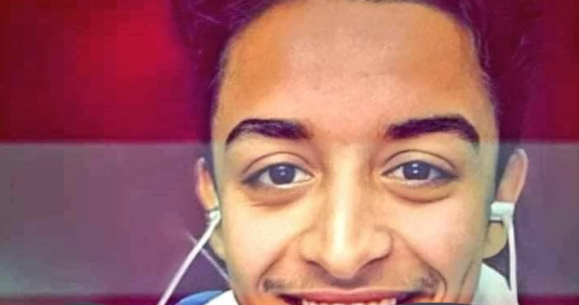
“I was deprived of my right to get an education for two years. I am a fifth-year medical student, and the huge doses of antipsychotics I was given have killed a part of me I don’t think I will ever get back. My memory is not the same, I am not the same, and what breaks me the most is that they killed my dream of graduating from medical school with my classmates last year.
“Everyone who helped or tried to help me was harmed, including physical harm. I’m really sorry for them. [My family] believe whoever helped me or supported me are criminals and people without morals.
“My family refused to disown me. They thought if they could make me depend on them, it would make me go back to them and accept living the life they want for me. They constantly made it clear to me that it is OK with them if I killed myself, since it would keep their good image in front of the community […] but they didn’t wait for me to do it, they wanted to do it themselves.”
In May 2018, the family moved back to Yemen and by the following summer, the situation with his family had descended to the ultimate low. openDemocracy has received corroborating evidence for Al-Zindani’s claim that his father threatened to kill him. His father has not responded to our offer to put across his side of the story.
“He also reported me to the Houthi militia,” Yahyia said, referring to the forces that run much of the war-divided country.
Transphobia in Islam: a modern phenomenon
As a gender equality and LGBTQIA+ rights advocate, Al-Zindani dreams of creating the change that the suppressed LGBTQIA+ community in Yemen so desperately needs.
“I dream of relocating to a country where I can safely express my thoughts and my identity, where my inalienable human rights are respected and where my voice can create the change that our community needs, so that the rest of us don’t disappear into thin air,” he said.
Although Al-Zindani is as vocal as he can be online for trans rights, he struggles with being restricted to an isolated existence in hiding. “The only visible life I have is on social media. Other than that I am isolated and this is not a life any human being deserves.”
Even the ability to speak out online was a hard-won right. “For a long time, I was deprived of my right to privacy and under constant supervision. My emails, phone records and conversations were being checked constantly.” Even after he left Yemen, he said his family made others report his Facebook account, so that it was shut down.
Modern transphobia within Islam doesn’t have a basis in traditional teaching, according to two Australian academics, Aisya Aymanee and Maria Pallotta-Chiarolli. In an article published last year, they argued: “The Qur’an unequivocally acknowledges the existence of transgender people.”
And they pointed out that two senior religious figures – Muhammad Sayyid Tantawi, who held Egypt’s most prominent religious role until his death in 2010, and Ayatollah Khomeini, the late political leader of Iran’s Islamic Revolution – issued fatwas in the 1980s permitting gender reassignment surgery.
According to Aymanee and Pallotta-Chiarolli, “pre-colonial Islamic communities” regularly allowed people known as mukhannath into women’s spaces. Mukhannath are said to be “males whose effeminate qualities are innate and natural, and who do not experience sexual attraction towards women”. It has also been claimed that the mukhannath of traditional Islamic communities are what modern society knows to be trans women.
However, across much of the Middle East, the colonial legacy of transphobia overrides traditional acceptance. In January, Al-Zindani tweeted about numerous cases of trans people in Yemen allegedly being assaulted or killed.
The cases included an eight-year-old trans boy, who Al-Zindani said was killed by militias in the south of the country. “I was in contact with several NGOs inside Yemen, but they all declined to help because they were scared of the Houthi militia,” he said. “We either disappear, get killed, or get jailed and then are never heard of again.”
